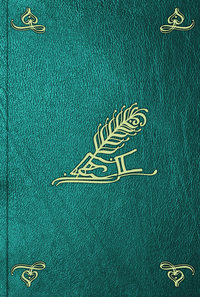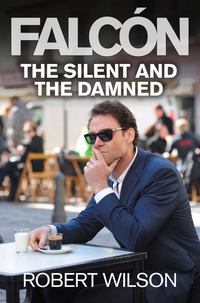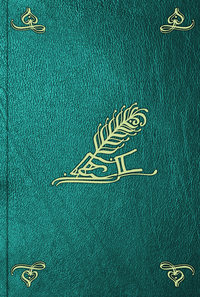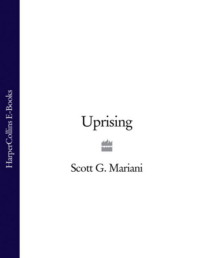
Полная версия
The Company of Strangers
He turned his back to the sun. His face, backlit by the window, blackened. He held out his hand.
‘Welcome to the Company,’ he said.
‘The Company?’
‘What we call ourselves to each other.’
‘Thank you, sir.’
‘You’ll do very well,’ he said.
Miss Bridges sat her in a small room off her office with the file. It wasn’t a long file. The changes that had been wrought in her life were small but significant. She would now be known as Anne Ashworth. Her parents lived on Clapham Northside. Her father, Graham Ashworth, was an accountant, and her mother, Margaret Ashworth, was a housewife. Their lives to date had nearly been too boring to read. She digested the material, closed the file and left.
She crossed St James’s Park and The Mall and walked up St James’s Street to Ryder Street where she knew her mother worked in a government office. She stood on the other side of St James’s to the entrance to Ryder Street and waited. At lunchtime the streets began to fill with people looking for something to eat. Men dived into pubs, women into teahouses. Her mother’s white face appeared in the entrance to 7 Ryder Street and walked down to St James’s. Andrea tracked her from across the street, into the park. Before the lake she took a right and chose a bench with a view of Duck Island and Horse Guards Road.
Rawlinson’s distinctive gait was impossible to miss. He came from the other end of the park and joined her mother on the bench. They sat and looked at the ducks. Rawlinson’s hand rested on the duckhead-topped cane. After some minutes he held her hand; Andrea saw the join just below the two slats of wood at the back of the bench. A roaming dog paused to sniff at their feet and moved on. Her mother turned to look at the side of Rawlinson’s face and spoke something into his ear, only inches away. They stayed there for half an hour and then walked together, but unconnected, towards the bridge across the middle of the lake where they parted.
Andrea killed time in a reference library just off Leicester Square until the late afternoon. Rawlinson was punctual about leaving work. Andrea watched him swing his boom down towards Petty France and into St James’s Park tube station. She followed him to a terraced house in Flood Street in Chelsea. A woman met him at the door, kissed him and took his hat. The door closed and through the lead-glass panes Andrea saw the coat coming off his back. The same coat that her mother had smoothed on to his shoulders the previous afternoon. Rawlinson’s blurred outline appeared in the frame of the sittingroom window and collapsed out of sight into a chair. The woman arrived in the window, looked out through the net curtains directly into Andrea’s stunned face and then up and down the street as if she was expecting someone.
Andrea walked back down to Sloane Square and caught a bus to Clapham Common, her feet in an uproar from the hard leather of her mother’s shoes. She was furious at the years spent watching her mother laying the bricks to the austere edifice of her own hypocrisy. She limped home, dragged her tortured feet up the wooden stairs and collapsed face-down on the bed.
The next morning at breakfast her mother appeared in the doorway tightly bound in a burgundy silk dressing gown. Andrea felt her contemplating six or seven lines of attack before putting the kettle on – the English solution to personal confrontation.
‘I got the job,’ said Andrea.
‘I know.’
‘How?’
‘Mr Rawlinson’s secretary called me at the office,’ she said, ‘which was very considerate, I thought.’
Andrea searched her mother’s back for clues. The scapulae shifted under the silk.
‘Do you like Mr Rawlinson?’ asked Andrea.
‘He seems very pleasant.’
‘Do you think you could like him…more?’
‘More?’ she said, rounding on her daughter. ‘What do you mean by “more”?’
‘You know,’ she said, shrugging.
‘Goodness me, I’ve only met him once. He’s probably married.’
‘That would be a shame, wouldn’t it?’ said Andrea. ‘Anyway, I’ll be out of here by the weekend.’
‘What’s that supposed to mean?’
‘I’ll clear my room out. You could take a lodger.’
‘A lodger,’ said Mrs Aspinall, aghast.
‘Why not? They pay money. You could use a few pounds extra, couldn’t you?’
Mrs Aspinall sat down opposite her daughter, who had a forearm either side of her plate, hands poised on the table top like spiders.
‘What happened to you yesterday afternoon?’
‘Nothing. After Rawlinson, I went to the library.’
‘You’re going away. You’ve got your whole life ahead of you. I’m staying here. I’ll be on my own. Don’t you think I’ll be lonely? Have you thought about that?’
‘That depends if you’re alone.’
Her mother blinked. Andrea decided that the line was her parting shot. She looked back from the bottom of the stairs, her mother was still in the same position, the kettle whistling madly in her ear.
Andrea got straight down to packing her few clothes and books. Her mother thundered up the stairs. Half a minute of antagonistic silence opened up as she hovered outside the bedroom door. She moved off. Water ran in the bathroom.
Fifteen minutes later Mrs Aspinall came into Andrea’s empty room with only the case in the middle of the floor. All vestiges of her daughter already gone.
‘You’ve packed,’ she said. ‘I thought you weren’t leaving until Saturday.’
‘I wanted to be organized.’
Her mother’s face was indecipherable, too much going on at once for any emotion to make itself plain.
The complicated world of adults.
Chapter 7
Saturday, 15th July 1944, Lisbon Airport.
Andrea landed in Lisbon at three in the afternoon, the adrenalin from her first flight still live in her veins. The heat slammed into her at the door of the aircraft along with the smell of hot metal, tar and vaporized aviation fuel. She took out the white-rimmed sunglasses her mother had given her to protect her eyes and took her first steps on foreign soil as Anne Ashworth.
The sun slapped down on the wide-open spaces of the airfield. The landscape beyond wavered in the rising heat. The trunks of palm trees snaked up to their frayed heads. The flat ground at their feet shone mirror bright. Nobody was moving out there, not even a bird, in the torrid afternoon.
The new airport, barely eighteen months old, had straight, hard, fascistic lines, its main building dominated by the control tower affright with antennae. Armed police moved around the halls inside looking at everyone, who in turn looked at no one, sank into themselves, tried to disappear. Andrea’s dark face in the white sunglasses stood out and the customs officer selected her with two beckoning fingers and a cigarette trailing smoke.
He watched her with dark, long-lashed eyes as she opened her case, his lips invisible under a heavy moustache. Other passengers passed through with cursory glances over their luggage. The customs officer dismantled her packing, shook out her underwear, leafed through her books. He lit another cigarette, felt around the lining of the case, glancing up at her so that she stared off around the empty hall, bored. His eyes were rarely on the job but more frequently on her hips, or drilling into her bust. She twitched a nervous smile at him. His smile back showed black and brown rotten teeth, lichen-fringed. She flinched. His sad eyes hardened and he left the counter. She repacked the case.
The one man in the arrivals hall left no doubt as to his nationality. Blond hair combed back in straight rails, faint pencil moustache crayoned in, tweed jacket even in this heat, school tie. All that was missing was a lanyard with a pea whistle attached for bringing boys up short of the line.
‘Wallis,’ he said. ‘Jim.’
‘Ashworth,’ she replied. ‘Anne.’
‘Good show,’ he said, taking her case. ‘You were a long time in there.’
‘I was being shown some local colour.’
‘I see,’ he said, not sure what she meant, but still keen whatever. ‘I’m running you out to Cardew’s house in Carcavelos. They did tell you, didn’t they?’
‘You sound as if they might not have done.’
‘Communication’s abysmal in this outfit,’ he said.
He threw her case into the boot of a black Citroën and got in behind the wheel. He offered her a cigarette.
‘Três Vintes, they’re called. Not bad. Not a patch on Woodies though.’
They lit up and Wallis drove at high speed straight into the heart of Lisbon, which at this hour and in the heat was silent. He hung an elbow out of the window, sneaked a look at her legs.
‘First time abroad?’ he asked.
She nodded.
‘What do you think?’
‘I thought it would be…older.’
‘This is all the new building here. Salazar, he’s the chap in charge, he made so much money out of us…and Jerry – you know, what with the wolfram, sardines and the like – he’s building a new city, new motorways, a stadium, all this residential stuff – bairros, they call them here – all brand new. There’s even talk of stringing a bridge across the Tagus. You’ll see, though…when we get into the centre. You’ll see.’
The Citroën’s tyres squealed around a mule-drawn cart with eight people in it. The wooden wheels rattled over the cobbles. Dogs attached to the axle with string trotted in the shade, tongues lolling in the heat. The broad, dark faces of the women stared down without seeing.
‘We’ll take the scenic route,’ said Wallis. ‘The hills of Lisbon.’
Anne, as she now thought of herself permanently, leaned into him as they rounded the Praça de Saldanha, their faces suddenly close together, his with more than professional interest in them, giving her some girlish satisfaction. They shot down the hill into Estefânia, rounded the fountain and crossed high above another street on to Avenida Almirante Reis. Wallis built up speed down the long straight avenue. Overhead cables appeared, the tyres stuttered over the tramlines embedded in the cobbles. The ramparts of the Castelo São Jorge high above them were vague in the heat haze, the dark stone pines crowding a shoulder. They came into an area which looked as if it had suffered recent bomb damage and even the buildings still standing looked decrepit and crumbling, with grasses growing out of the walls and roofs, and the plaster façades scabbed and blistered.
‘This is the Mouraria, which they’re demolishing, cleaning the area up a bit. On the other side of the hill is the Alfama, best place to live in Lisbon when the Moors were here but they moved out in the Middle Ages. Scared of earthquakes. And, you know, that quarter was one of the few places that survived the big one in 1755. I tell you, it’s like a medina in there, not too sanitary – and I should know, I was in Casablanca until last year.’
‘What were you doing there?’
‘Cooking things up in the kasbah.’
They came into a square whose centre was dominated by a massive wrought-iron covered market. Police, mounted and on foot, patrolled the area. The road was scattered with cobblestones torn up and thrown from the now pockmarked pavements. A Manteigaria on the corner had been half destroyed, no glass left in any of the doors and windows, and two women inside, sweeping up debris. The shop’s awning was ripped but still showed the words carnes fumadas.
‘Praça da Figueira. There was a riot here this morning. The Manteigaria was selling chouriços filled with sawdust. The rationing’s bad enough without that, what with Salazar selling everything to Jerry. The locals got angry. The communists sent in a few provocateurs, the Guarda showed up on horseback. Heads got broken. There’s two wars going on here in Lisbon. Us versus Jerry and the Estado Novo versus the Communists.’
‘Estado Novo?’
‘Salazar’s New State. The régime. Not much different to the bastards we’re fighting. Secret police – Gestapo trained – called the PVDE. The city’s infested with bufos – informers. The prisons…well, you don’t want to go to a Portuguese prison. They even used to have a concentration camp out on the Cape Verde Islands. Tarrefal. The frigideira, they called it…the frying pan. This is the Baixa, the business end of town. Completely rebuilt by the Marquês de Pombal after the earthquake. He was another hard man. The Portuguese seem to need them every few hundred years.’
‘Need what?’
‘Bastards.’
They rounded a square with a high column in the centre and went up a slip road off the corner. Wallis accelerated up the steep hill. A metal walkway crossed the street high above the buildings, connected to a lift.
‘Elevador do Carmo, built by Raoul Mesnier. Gets you from the Baixa to the Chiado without breaking a sweat.’
They turned right, first gear up the hill. The difference of it all pouring into Anne. More policemen in khaki, guns in leather holsters. Peaked box caps. Shops with black glass and gold lettering. Jerónimo Martims’ Chá e café. Chocolates. Broad pavements with black and white geometric patterns. Another turn. Another steep hill. Past a tram, groaning and screeching downhill. Dark impassive faces at the windows. Wallis pointed across her. The Baixa opened out below in squares of red-tiled roof. The castle still hazy, but now at the same level as them across the valley.
‘Best view in Lisbon,’ said Wallis. ‘I’ll show you the embassy then I’ll take you out to the seaside.’
They drove around Largo do Rato and the Jardim da Estrela and turned left in front of a massive twin-towered, domed cathedral.
‘Basílica da Estrela,’ said Wallis. ‘Built by Maria I at the end of the eighteenth century. She said she’d build a cathedral if she gave birth to a son, which she did. They started building it and the boy died two years before it was completed. Smallpox. Poor lad. But that’s Lisbon for you.’
‘That’s Lisbon?’
‘A sad place…suits those of melancholic disposition. Are you?’
‘Melancholic? No. And you…Mr Wallis?’
‘Jim. Call me Jim.’
‘You don’t seem to be that way inclined, Jim.’
‘Me? No. No time for it. What’s there to be sad about? It’s only war. Let’s go and see the enemy.’
He cut round the back of the basilica, up a short incline and then down into Lapa. They rolled quietly into a small square where a large mansion stood behind wrought-iron gates and high railings. A swastika flag hung from a flagpole above the door. Two limp phoenix palms stood in the garden. A flame of purple bougainvillea climbed above a window. The blue of the Tagus was visible over the rooftops. For once Wallis didn’t say a word. The car dropped down a short hill, turned left and after a hundred yards Wallis nodded up the hill to where the Union Jack hung from a long pink building halfway up.
‘We’re practically neighbours,’ he said. ‘I won’t drive you up there. There’re always bufos hanging around outside looking for new faces, ready to report anything to the Germans.’
They went down the hill and came out at the Santos docks. Wallis turned right, heading west along the banks of the Tagus and out beyond the mouth of the estuary. The road hugged the coastline, the railway tracks alongside.
At Carcavelos, just by a large, brown, ancient fort they turned away from the sea and went through the centre of town and out the other side where they pulled up in front of a large, sombre house standing on its own behind a high wall. Two mature stone pines in the garden cast dark shadows over the windows. Wallis honked the horn and a gardener appeared from the shrubbery to open the gate.
‘This is Cardew’s house,’ said Wallis, ‘your boss at Shell, but your other bosses will see you first – Sutherland and Rose.’
Wallis lifted out her luggage, rang the door bell, got back in the car and reversed out. A maid came to the door, took her case inside and led her down the hall to a shuttered room where two men sat, one smoking a pipe, the other a cigarette. The maid closed the door. The two men stood. One tall and slim with brown hair swept back, introduced himself as Richard Rose. The other, shorter, with thick, black, undulating hair just said: ‘Sutherland’. Both were in shirtsleeves, the room stuffy even with the french windows half-open on to the lawn.
Sutherland stared at Anne from under dark eyebrows. He had blackberry smudges at the corners of his blue eyes. His skin was white and pasty. He pointed to a chair with the stem of his pipe.
‘Wallis took his time,’ he said.
‘I think he gave me the introductory tour, sir.’
He worked on his pipe for a moment. His lips were oddly bluish, kissing off the pipe stem. He was a still man, no expression around his eyes or mouth and little movement in his body. A lizard, thought Anne.
‘You’re what they call morena,’ said Rose. ‘Dark. Dusky.’
‘As opposed to loira,’ she said. ‘Blonde. Dizzy.’
Rose didn’t like it, too cheeky on her first day perhaps. Sutherland smiled so fast and with such little breadth that all she saw was a brown column on the left side of his front teeth – discoloured from smoking.
‘I didn’t think your ability to speak Portuguese was part of your cover,’ said Sutherland, his voice coming from somewhere down his throat, his lips parting to say the words but not moving.
‘Sorry, sir.’
‘This place…Lisbon,’ he clarified, ‘is…perhaps Wallis told you, a very dangerous city for the careless. You might think that the worst is over, now that we’ve landed in Normandy, but there are still some very critical situations, life and death situations, for men at sea and in the air. The idea of our intelligence operation here is to make those situations safer, not to exacerbate them with thoughtlessness.’
‘Of course, sir,’ said Anne, thinking – pompous.
‘Information is at a premium. There’s an active market on all sides. Nobody is innocent. Everyone is either buying or selling. From maids and waiters to ministers and businessmen. The overall climate is quieter. A lot of the refugees have been shipped out now, so the rumour circuit is tighter and there’s less misinformation. We have won the economic war. Salazar no longer fears a Nazi invasion and he’s closed the wolfram mines. We’re doing our best to make sure that they don’t get their hands on any other useful products. As a result we see things more clearly but, although there are fewer players on the pitch, and less complications, it has become a much more subtle affair because now, Miss Ashworth, we are in the endgame. Do you play chess?’
She nodded, mesmerized by the intensity of his passionless face, her own blood zipping around her body faster now that she was close to the current, the live wire. All her training seemed like so much theory. In less than an hour a new world had been peeled open – not just the place, Lisbon, but also an immediate sense of the power of the clandestine. The privilege of knowing things that nobody else knew. Smoke trailed from the pipe held just off Sutherland’s face, curled through the sparse sunlight coming through the cracks of the shutters and disappeared up to the high ceiling.
‘Part of your mission is a social one. There are no lines drawn here. Who is who? Who plays for whom? There are powerful people, rich people, people who’ve made a great deal of money out of this war, out of us and the Germans. We know who some of them are, but we want to know all of them. Your ability to speak Portuguese, or rather understand it, is important in this respect and, equally, that nobody should know of this facility. The same applies to your German. You will only use that in the office for translating these journals.’
‘What specifically is it from these journals that the Americans are interested in?’
Sutherland beckoned Rose into the conversation, who gave a historical rundown of German nuclear capability from their first successful fission experiments back in 1938 through to Weizsäcker’s discovery of Ekarhenium, the vital new element that could make the bomb. As Rose spoke, Sutherland watched the young woman. He didn’t listen because he didn’t understand any of it and he could see that she was struggling too.
‘On 19th September 1939 Hitler made a speech in Danzig in which he threatened to employ a weapon against which there would be no defence,’ said Rose. ‘The Americans are convinced that he meant an atomic bomb.’
‘You shouldn’t worry about understanding any of this perfectly. There are probably only a handful of scientists in the world who do,’ said Sutherland. ‘The important thing is for you to understand the significance of this endgame that we’re all involved in.’
‘Why would the Germans tell you all this in a physics journal and published papers? Shouldn’t this be top secret?’
Sutherland ignored the question.
‘The fact is that the Allies have their own bomb programme. We have our own Ekarhenium, the 94th element, which for reasons of secrecy we refer to as “49”.’
Brilliant, thought Anne, to switch the numbers round like that.
‘In March 1941 Fritz Reiche, a German physicist on the run from the Nazis, passed through Lisbon on the way to the United States,’ Rose continued. ‘He was met by the Jewish Refugee Organization here and before they put him on a ship to New York we had a meeting in which he warned us that a bomb programme did exist in Germany. We now know that they’re building an atomic pile for the creation of Ekarhenium somewhere in Berlin. We also know that Heisenberg went to see Niels Bohr, the Danish physicist, and that they had an argument about whether atomic warfare was the right way for physics to be going. A rift developed between the two men over the Germans’ active bomb programme. Heisenberg also sketched out, in rough, the makings of an atomic pile. Since then Bohr has left Denmark and gone over to the Americans. You’ve been in London since June?’
‘Yes, sir.’
‘So you know about the doodlebugs…the V1 rocket bombs?’
‘Yes, sir.’
‘We believe that these are the prototype rockets for launching an atomic bomb on London.’
It felt suddenly cold in the room despite the grinding heat outside. Anne rubbed her arms. Sutherland sucked on his pipe, which bubbled like a tubercular lung in the stem.
‘Your day job in Cardew’s office will be to microfilm the two German physics journals Zeitschrift für Physik and Die Naturwissenschafen and provide Sutherland and me with typed translations of any articles which pertain to atomic physics,’ said Rose. ‘More important than that is the accommodation we’ve managed to arrange for you in Estoril. Cardew has been working up a good social relationship with a fellow called Patrick Wilshere. He’s a wealthy businessman in his mid fifties, with contacts and companies in the Portuguese colonies, mainly Angola. He is also Irish, a Catholic and not a lover of Great Britain. We have intelligence that he was selling wolfram, from his Portuguese wife’s family’s mining concessions in the north, exclusively to the Germans, as well as cork and olive oil from family estates in the Alentejo. He has offered Cardew a room in his considerable house for a lodger. He specified a female lodger.’
Sutherland looked to see the effect of this on his new agent. Her blood now felt as thin and cold as ether.
‘What is expected of me?’ she asked, clipping each word off.
‘To listen.’
‘You just said that he specified a female lodger.’
‘He prefers female company,’ said Rose, as if it was something he himself couldn’t understand.
‘What about his wife? Doesn’t his wife live in the same house?’
‘I understand that the relationship with his wife has…broken down somewhat.’
Anne began to breathe deep, slow breaths. Her thighs were sticking together under the cotton of her dress. Sweat seemed to be pricking out all over. Sutherland shifted in his chair. His first bodily movement.
‘Cardew thinks she’s suffered some kind of breakdown,’ he said.







